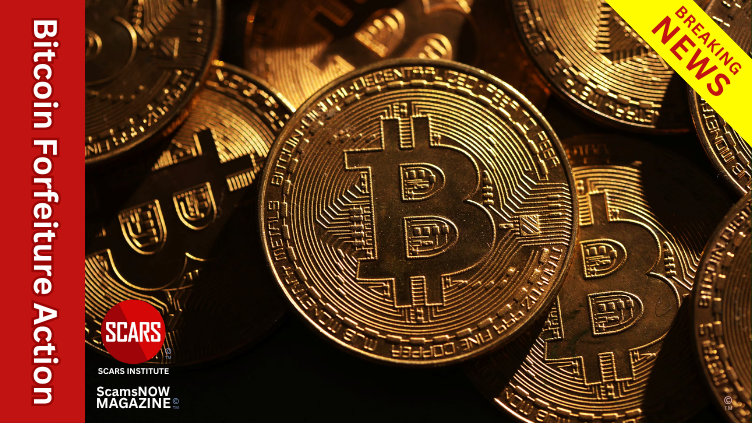xDedic Marketplace Is Now An Ex-xDedic Marketplace!
Global Law Enforcement Shuts Down Dark Web Marketplace and Arrests 19
Authors:
• SCARS Editorial Team – Anthropologist, Scientist, Director of the Society of Citizens Against Relationship Scams Inc.
• United States Department of Justice
Article Abstract
United States Attorney Roger B. Handberg concludes a significant transnational cybercrime investigation into the xDedic Marketplace, a dark web site trafficking in login credentials and personal data of U.S. residents.
Operating globally, this marketplace enabled diverse illegal activities such as tax fraud and ransomware.
The takedown in 2019 involved a coalition of law enforcement entities and led to the dismantling of xDedic’s infrastructure. Subsequent investigations and prosecutions of administrators, sellers, and buyers—spanning several nations—resulted in the recent numerous convictions and extraditions, highlighting the collaboration among various countries and agencies to combat cybercrime. The cases, managed by the FBI and IRS, underscore the complexity of pursuing cybercriminals across borders.
19 Individuals Worldwide Charged In Transnational Cybercrime Investigation Of The xDedic Marketplace
Tampa, Florida – United States Attorney Roger B. Handberg announces the culmination of a transnational cybercrime investigation involving the Dark Web xDedic Marketplace. According to court documents, the xDedic Marketplace was a website on the dark web that illegally sold login credentials (usernames and passwords) to servers located across the world and personally identifiable information—dates of birth and Social Security numbers—of U.S. residents. Once purchased, criminals used these servers to facilitate a wide range of illegal activity that included tax fraud and ransomware attacks.
The xDedic dark web administrators practiced exceptional operational security, operating the website across a widely distributed international network, and utilizing cryptocurrency in order to hide the locations of the Marketplace’s underlying servers and the identities of its administrators, sellers, and buyers. In total, xDedic offered more than 700,000 compromised servers for sale, including at least 150,000 in the United States and at least 8,000 in Florida. Marketplace victims spanned the globe and industries, including local, state, and federal government infrastructure, hospitals, 911 and emergency services, call centers, major metropolitan transit authorities, accounting and law firms, pension funds, and universities.
In January 2019, the U.S. Attorney’s Office for the Middle District of Florida (Tampa Division) seized xDedic’s domain names and dismantled the website’s infrastructure, effectively ceasing its operation. The international operation to dismantle and seize this infrastructure was the result of close cooperation with law enforcement authorities in Belgium and Ukraine, the European law enforcement agency Europol, the National High Tech Crime Unit from the Dutch National Police, and the German Bundeskriminalamt.
In the years that followed the takedown of the xDedic Marketplace, the U.S. Attorney’s Office investigated and charged individuals involved in every level of the website’s operation, including its administrators, server sellers, and buyers. For example, Alexandru Habasescu and Pavlo Kharmanskyi were Marketplace administrators. Habasescu, who resided in Chisnau, Moldova, was the lead developer and technical mastermind for the Marketplace, while Kharmanskyi, who lived in Kiev, Ukraine, advertised for the website, paid administrators, and provided customer support to buyers. Habasescu was taken into custody in the Spanish Canary Islands in 2022 and extradited to the United States, while Kharmanskyi was arrested at the Miami International Airport in 2019 as he attempted to enter the United States. Habasescu and Kharmanskyi were sentenced to 41 and 30 months’ imprisonment, respectively.
Dark Web Marketplace seller Dariy Pankov, a Russian national, was one of the highest sellers on the Marketplace by volume, listing for sale the credentials of more than 35,000 compromised servers located all over the world and obtaining more than $350,000 in illicit proceeds. Pankov’s criminal activities were facilitated by a powerful malicious software program he developed named “NLBrute,” that was capable of compromising protected computers by decrypting login credentials. Pankov was taken into custody in the Republic of Georgia in 2022 and extradited to the United States. He was subsequently sentenced to 60 months in federal prison.
Nigerian national Allen Levinson was a prolific buyer on the Marketplace who held particular interest in purchasing access to U.S.-based Certified Public Accounting firms. He used the information he obtained from those servers to file hundreds of false tax returns with the United States government, requesting more than $60 million in fraudulent tax refunds. Levinson was taken into custody in the United Kingdom in 2020 and extradited to the United States. He was subsequently sentenced to 78 months in federal prison.
Many of the charged defendants are foreign nationals and hold citizenship in countries that do not extradite their nationals, requiring the United States to locate and extradite subjects from countries that do. As identified in the table below, to date, 17 defendants have been charged and/or extradited to the United States.
|
Name (Age, Nationality) |
Offense of Conviction |
Term of Imprisonment |
|
Allen Levinson (31, Nigeria) |
Conspiracy to Commit Mail and Wire Fraud |
78 months |
|
T’Andre McNeely (33, California) |
Conspiracy to Commit Mail and Wire Fraud |
78 months |
|
Michael Carr (33, California) |
Conspiracy to Commit Mail and Wire Fraud |
78 months |
|
Dariy Pankov (29, Russia) |
Conspiracy to Commit Access Device and Computer Fraud |
60 months |
|
Glib Ivanov-Tolpintsev (29, Ukraine) |
Conspiracy to Commit Access Device and Computer Fraud |
48 months |
|
Alexandru Habasescu (31, Moldova) |
Access Device Fraud
|
41 months |
|
Adedotun Adejumo (45, Oklahoma) |
Conspiracy to Commit Wire Fraud
|
33 months
|
|
Pavlo Kharmanskyi (32, Ukraine) |
Access Device Fraud
|
30 months |
|
Joshua Spencer (29, New York) |
Conspiracy to Commit Access Device Fraud |
28 months |
|
Ibrahim Jinadu (36, Georgia) |
Conspiracy to Commit Wire Fraud |
27 months |
|
Brandon Williams (34, California) |
Conspiracy to Commit Mail and Wire Fraud |
12 months |
|
Harold McKinzie (29, Illinois) |
Wire Fraud |
5 years’ probation |
|
Bamidele Omotosho (42, Nigeria) |
Conspiracy to Commit Wire Fraud |
Sentence pending |
|
Olayemi Adafin (38, United Kingdom) |
Conspiracy to Commit Wire Fraud |
Sentence pending |
|
Olakunle Oyebanjo (29, United Kingdom) |
Conspiracy to Commit Wire Fraud |
Sentence pending |
|
Akinola Taylor (38, United Kingdom) |
Conspiracy to Commit Wire Fraud |
Sentence pending |
|
Oluwarotimi Ogunlana (29, Texas) |
Conspiracy to Commit Wire Fraud |
Sentence pending |
In addition to the individuals above, xDedic Marketplace buyers Olufemi Odedeyi (42, United Kingdom) and Oluwaseyi Shodipe (41, United Kingdom) have been charged with conspiracy to commit wire fraud and aggravated identity theft. Both and are pending extradition from the United Kingdom. Shodipe has also been charged with making false claims and theft of government funds. If convicted, Odedeyi and Shodipe each face a maximum penalty of 20 years in federal prison.
These cases were led by the Tampa Division of the Federal Bureau of Investigation and the Tampa Field Office of Internal Revenue Service – Criminal Investigation. Substantial assistance was provided by the IRS-CI Cyber Crimes Unit (Washington, D.C.), the Department of Justice’s Office of International Affairs, and Homeland Security Investigations. This investigation also benefited greatly from cooperation with foreign law enforcement in Belgium, Georgia, Germany, Poland, Spain, the United Kingdom, Romania, Switzerland, Estonia, Latvia, Bulgaria, Ukraine, Lithuania, and Moldova. The cases are being prosecuted by Assistant United States Attorneys Rachel K. Jones, Carlton C. Gammons, and Suzanne Nebesky.
More:
- INTERPOL Operation HAECHI IV – Over 3,500 Successful Arrests – Expanded Details – 2023 (scamsnow.com)
- Nigerian Scammer Justice: Why We MUST Extradite – Guest Editorial – 2023 (scamsnow.com)
- EUROPOL Money Mule Action 2023 – Over 10,000 Identified (scamsnow.com)
- Telegram Criminals | Brett Johnson’s Criminal Thoughts EP 1 (scamsnow.com)
- Euro Phishing Gang Shut Down Europol & Partners – 2023 (scamsnow.com)
- China Arrests 706 Chinese Scammers Involved In Phone & Internet Scams From Myanmar (scamsnow.com)
- Repeat Nigerian Scammer Adedayo Ilori Gets 25 Years In U.S. Prison (scamsnow.com)
- China Cracks Down On Scammers – Chinese & Myanmar Police Arrests 1207 Scammers In Myanmar (scamsnow.com)
- EUROPOL Report: Money-Laundering Criminals Are Adapting To New Technology Faster Than Authorities Can Keep Up (scamsnow.com)
- Criminal Cryptocurrency Boss Jailed For 11,196 Years In Turkey For Fraud (scamsnow.com)
SCARS Resources:
- For New Victims of Relationship Scams newvictim.AgainstScams.org
- Subscribe to SCARS Newsletter newsletter.againstscams.org
- Sign up for SCARS professional support & recovery groups, visit support.AgainstScams.org
- Find competent trauma counselors or therapists, visit counseling.AgainstScams.org
- Become a SCARS Member and get free counseling benefits, visit membership.AgainstScams.org
- Report each and every crime, learn how to at reporting.AgainstScams.org
- Learn more about Scams & Scammers at RomanceScamsNOW.com and ScamsNOW.com
- Global Cyber Alliance ACT Cybersecurity Tool Website: Actionable Cybersecurity Tools (ACT) (globalcyberalliance.org)
- Self-Help Books for Scam Victims are at shop.AgainstScams.org
- Donate to SCARS and help us help others at donate.AgainstScams.org
- Worldwide Crisis Hotlines: International Suicide Hotlines – OpenCounseling : OpenCounseling
- Campaign To End Scam Victim Blaming – 2024 (scamsnow.com)
More ScamsNOW.com Articles
-/ 30 /-
What do you think about this?
Please share your thoughts in a comment below!
SCARS LINKS: AgainstScams.org RomanceScamsNOW.com ContraEstafas.org ScammerPhotos.com Anyscam.com ScamsNOW.com
reporting.AgainstScams.org support.AgainstScams.org membership.AgainstScams.org donate.AgainstScams.org shop.AgainstScams.org
youtube.AgainstScams.org linkedin.AgainstScams.org facebook.AgainstScams.org
Important Information for New Scam Victims
- Please visit www.ScamVictimsSupport.org – a SCARS Website for New Scam Victims & Sextortion Victims.
- SCARS Institute now offers its free, safe, and private Scam Survivor’s Support Community at www.SCARScommunity.org – this is not on a social media platform, it is our own safe & secure platform created by the SCARS Institute especially for scam victims & survivors.
- SCARS Institute now offers a free recovery learning program at www.SCARSeducation.org.
- Please visit www.ScamPsychology.org – to more fully understand the psychological concepts involved in scams and scam victim recovery.
If you are looking for local trauma counselors, please visit counseling.AgainstScams.org
If you need to speak with someone now, you can dial 988 or find phone numbers for crisis hotlines all around the world here: www.opencounseling.com/suicide-hotlines
Statement About Victim Blaming
Some of our articles discuss various aspects of victims. This is both about better understanding victims (the science of victimology) and their behaviors and psychology. This helps us to educate victims/survivors about why these crimes happened and not to blame themselves, better develop recovery programs, and help victims avoid scams in the future. At times, this may sound like blaming the victim, but it does not blame scam victims; we are simply explaining the hows and whys of the experience victims have.
These articles, about the Psychology of Scams or Victim Psychology – meaning that all humans have psychological or cognitive characteristics in common that can either be exploited or work against us – help us all to understand the unique challenges victims face before, during, and after scams, fraud, or cybercrimes. These sometimes talk about some of the vulnerabilities the scammers exploit. Victims rarely have control of them or are even aware of them, until something like a scam happens, and then they can learn how their mind works and how to overcome these mechanisms.
Articles like these help victims and others understand these processes and how to help prevent them from being exploited again or to help them recover more easily by understanding their post-scam behaviors. Learn more about the Psychology of Scams at www.ScamPsychology.org
SCARS INSTITUTE RESOURCES:
If You Have Been Victimized By A Scam Or Cybercrime
♦ If you are a victim of scams, go to www.ScamVictimsSupport.org for real knowledge and help
♦ SCARS Institute now offers its free, safe, and private Scam Survivor’s Support Community at www.SCARScommunity.org/register – this is not on a social media platform, it is our own safe & secure platform created by the SCARS Institute especially for scam victims & survivors.
♦ Enroll in SCARS Scam Survivor’s School now at www.SCARSeducation.org
♦ To report criminals, visit https://reporting.AgainstScams.org – we will NEVER give your data to money recovery companies like some do!
♦ Follow us and find our podcasts, webinars, and helpful videos on YouTube: https://www.youtube.com/@RomancescamsNowcom
♦ Learn about the Psychology of Scams at www.ScamPsychology.org
♦ Dig deeper into the reality of scams, fraud, and cybercrime at www.ScamsNOW.com and www.RomanceScamsNOW.com
♦ Scam Survivor’s Stories: www.ScamSurvivorStories.org
♦ For Scam Victim Advocates visit www.ScamVictimsAdvocates.org
♦ See more scammer photos on www.ScammerPhotos.com
You can also find the SCARS Institute’s knowledge and information on Facebook, Instagram, X, LinkedIn, and TruthSocial
Psychology Disclaimer:
All articles about psychology and the human brain on this website are for information & education only
The information provided in this and other SCARS articles are intended for educational and self-help purposes only and should not be construed as a substitute for professional therapy or counseling.
Note about Mindfulness: Mindfulness practices have the potential to create psychological distress for some individuals. Please consult a mental health professional or experienced meditation instructor for guidance should you encounter difficulties.
While any self-help techniques outlined herein may be beneficial for scam victims seeking to recover from their experience and move towards recovery, it is important to consult with a qualified mental health professional before initiating any course of action. Each individual’s experience and needs are unique, and what works for one person may not be suitable for another.
Additionally, any approach may not be appropriate for individuals with certain pre-existing mental health conditions or trauma histories. It is advisable to seek guidance from a licensed therapist or counselor who can provide personalized support, guidance, and treatment tailored to your specific needs.
If you are experiencing significant distress or emotional difficulties related to a scam or other traumatic event, please consult your doctor or mental health provider for appropriate care and support.
Also read our SCARS Institute Statement about Professional Care for Scam Victims – click here
If you are in crisis, feeling desperate, or in despair, please call 988 or your local crisis hotline – international numbers here.
More ScamsNOW.com Articles
A Question of Trust
At the SCARS Institute, we invite you to do your own research on the topics we speak about and publish. Our team investigates the subject being discussed, especially when it comes to understanding the scam victims-survivors’ experience. You can do Google searches, but in many cases, you will have to wade through scientific papers and studies. However, remember that biases and perspectives matter and influence the outcome. Regardless, we encourage you to explore these topics as thoroughly as you can for your own awareness.

























![NavyLogo@4x-81[1] xDedic Marketplace Is Now An Ex-xDedic Marketplace! Another Dark Web Shutdown 2024](https://scamsnow.com/wp-content/uploads/2025/04/NavyLogo@4x-811.png)
![scars-institute[1] xDedic Marketplace Is Now An Ex-xDedic Marketplace! Another Dark Web Shutdown 2024](https://scamsnow.com/wp-content/uploads/2025/04/scars-institute1.png)

![niprc1.png1_-150×1501-1[1] xDedic Marketplace Is Now An Ex-xDedic Marketplace! Another Dark Web Shutdown 2024](https://scamsnow.com/wp-content/uploads/2025/04/niprc1.png1_-150x1501-11.webp)